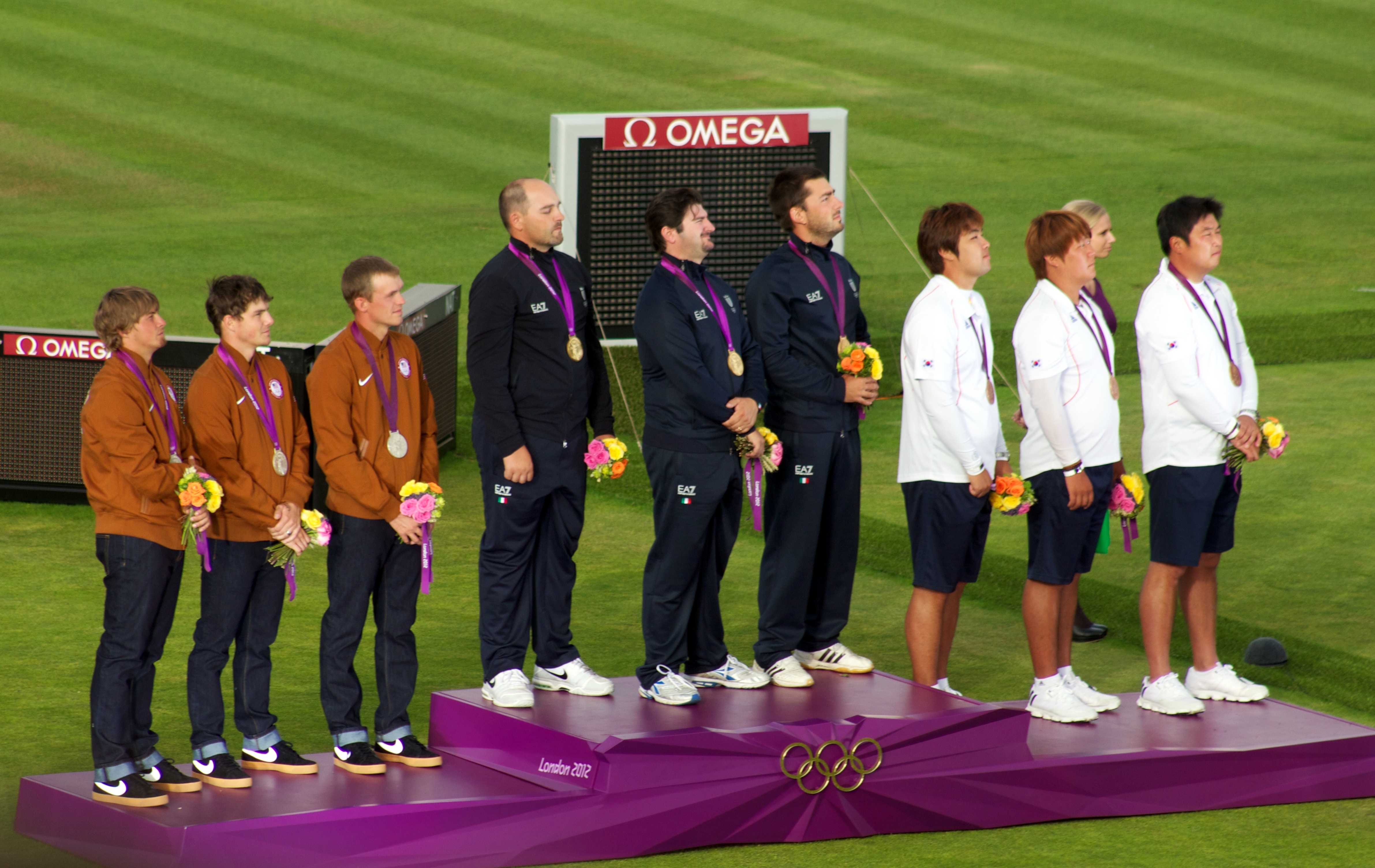I’ve seen a number of Tweets today sharing links and thoughts about the Olympics adding eSports. There’s even a petition you can sign to voice your support. Pretty neat, so I thought I’d comment on it myself and address a few points that have been brought up.
I think the first place we should start is an entry level issue for some people: is eSports a sport? Many will immediately discredit competitive gaming as non-physical, thus not a sport. Most definitions even emphasize “physical activity” as a fundamental aspect. If we look at the definition for “physical activity” we get something along the lines of “any bodily activity that enhances or maintains physical fitness and overall health and wellness” [Wikipedia]. Now to a degree this is a point against eSports, right? It’s not necessarily physically demanding outside the stress of enduring long tournaments. However, if we look at some sports, we find that they focus on specific human attributes like physical strength, endurance, or finesse, but not all together. The athletes choose to be well rounded athletic individuals not because their sport demands it, but because they demand it. The point I’m trying to make here is that a well rounded athlete could utilize competitive gaming (i.e. improving reflexes and dexterity) to be a better, stronger athlete. eSports should be considered a sport because it meets the requirement of challenging the body, even if it’s not in a traditional sense.

The top London Olympic archers don’t look overly fit (wikimedia.org).
Next we should talk about what sports are currently in the Olympics and how they argue for or against eSports. My initial reaction was that games like League of Legends and StarCraft 2 might take too long. Most Olympic sports seem to be highly specialized and focus on exact skills like running, throwing, jumping, flexibility, etc. Video games are played out in matches and don’t feel the same in that regard. But then we must remember that basketball and football (soccer) are included now. So clearly that isn’t a hurdle to getting them there. One argument against eSports I will concede to is that some sports may deserve priority over it. The Olympics only had 26 categories and 39 total disciplines. That’s not very many when considering how many could be added. Then we must ask ourselves, in the interest of fairness, are there sports that deserve to be included before eSports? For instance, Wind Surfing, Pole Dancing, Skateboarding, Softball, Equestrian Vaulting (which made me giggle), Rugby, and road racing were all petitioned for. Thus we must development an argument for why eSports deserves to be there over any of them.
One of those arguments, and a benefit I consider the greatest eSports has over traditional sports, is accessibility. Anyone can play from anywhere in the world. Have you ever heard anyone say, “yeah I love watching [soccer/football/tennis/etc] because I played it in high school and college”? This is what eSports has going for it. A world of gamers, playing these games, having fun, and developing strong connections with them. I see eSports taking off because the vast majority of the world will feel instantly connected to them. They’ll understand what it takes to be good and how skilled the professional players actually are. Not to mention the fact that eSports doesn’t require difficult scheduling and logistics. You can load the game and be competing within minutes whereas traditional sports are limited to your ability to find interested players, schedule a time to play (that doesn’t conflict with 10-15 other people), and then actually travel to the destination. Professional gamers will be able to spend more time practicing and competing than traditional athletes on top of a massive pool of new amateur talent.
Another benefit to eSports is safety. In the United States there’s been news articles expressing concern over football players and the amount of concussions their suffering. The constant banging of heads and bodies is resulting in brain damage to some players later in life. There’s also “disappointing injuries” like Raphael Nadal has experienced recently. The star Tennis athlete has had to forfeit his US Open matches due to a knee injury. This does happen in eSports as we’ve seen with someone like Liquid’s TLO, who took a break from gaming to nurture a serious carpal tunnel injury. But when compared, I would expect the numbers to be significant. No more would we hear depressing stories about college athletes who “almost made it”, but hurt their shoulder and had to retire.
So what’s holding us back? I’d say the biggest factor is simply public opinion. In this article on Forbes, the author argues that eSports could be in the Olympics by 2020, but personally, I’d be shocked if that happened. From what I’ve learned in life, 8 years is far too quick for a culture to accept something new. Yes, yes, I know eSports has been around for over a decade, but for most people it hasn’t. For most people eSports has been around for a year or two. And I believe this is the marking point for measuring how soon major events are going to take place. Not to mention that we need an entire industry to develop long before the Olympic committee considers us a serious candidate. Hopefully I’m wrong.
But in my honest opinion, I consider eSports the future of competition. It’s accessible and highly competitive, it’s an intellectual sport for an increasingly intellectual world, and has potential to completely crush any physical competition. I truly believe eSports will be the biggest change in the sports landscape in all of history, and I think it’s just around the corner.
UPDATE: someone on Twitter mentioned technology being a barrier for many countries to compete thus eliminating a number of potential athletes. This is definitely an issue, but I’m not sure to what degree. Technology is accessible virtually everywhere in the world and since we’re considering the best athletes, those who need the technology to play will find it. I think the biggest determination in this regard would be the amount of people that could participate within their country. For instance, in the US we’d have millions of gamers to choose candidates from, whereas a smaller country like Botswana or Nepal would only have thousands of potential candidates. But I’m not sure how much that matters since many of these countries only send a handful of athletes anyway.
He also mentioned literacy, which is an interesting issue. One of the barriers to eSports is a persons inability to understand what’s happening in complex games like StarCraft 2 and League of Legends. Even traditional sports like basketball and football (soccer), which are both in the Olympics, are easier to understand than the intricacies of most competitive games. And now compound that with a lack of gaming technology in poorer nations and it really becomes a problem. The only hope here is probably the proliferation of cheap gaming technology to these countries over the next decades.
Another Twitter follower asked where does it stop? If eSports is added, then why not “rock skipping” or “long distance spitting”? First, I’d like to say thanks to this guy for holding a very respectful and interesting conversation. I was worried when I first sent my Tweet that I’d get into a pissing match with some troll or “hater”. Quite the contrary. Second, this is an interesting question because I feel it represents a number of people. Our society often simplifies concepts we don’t actively participate in. For instance, with sports in general, non-competitors may perceive sports to be much simpler than it is. We don’t take into consideration the magnitude of minor decisions and the strategy that goes on behind the plays. Take American football, which may appear to be relatively simple. We have each team on the field, one with a ball, they run different patterns, throw it around, and try to make it across the field. This where much of the game may end for most people. They don’t consider all the thoughts and actions that professional athletes take into consideration when determining which play to run, whether or not to throw it, and factors off the field that might effect them. We just simplify it because we don’t need to know everything to enjoy it. With eSports it’s no different. The mind games, strategy, and decisions are even more complex than traditional sports. It’s like chess, except people enjoy watching it. That’s why I believe it’s the future of competition because it’s a fresh and intelligent approach to sports. The problem with rock skipping and long distance spitting is that they aren’t compelling. Plus I should probably mention that it doesn’t need to be fair anyway. The committee decides what constitutes an Olympic sport and they already don’t include hundreds of potential candidates. Thus worrying about where it stops is somewhat irrelevant.
 UPDATE 2: Another potential benefit to eSports is the lessons it might teach people. There are the obvious ones like a general appreciation for competition, learning to work as a team, understanding the intricacies of strategy, and the importance of subtle decisions. But there are also other potential lessons and rewards to eSports. For example, after learning how to program, I gained the ability to think more abstractly which has proved extremely useful in helping expand my mind. With eSports I think we could see the same thing as people delve into the complexities of competitive gaming and begin to understand just how much depth is involved in every decision. They may also use eSports as a catalyst for addressing issues in their own life since ignoring them may cause a mental barrier. If someone is depressed but also motivated to become a professional gamer, then they may begin the path to self-improvement. This of course applies to many things, but should not be lost on eSports.

